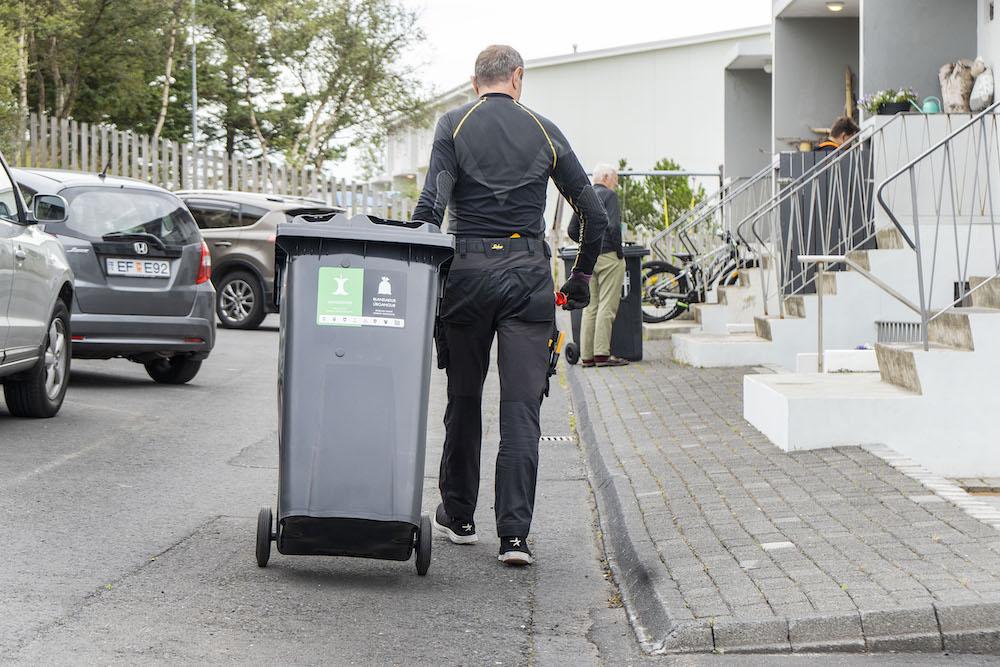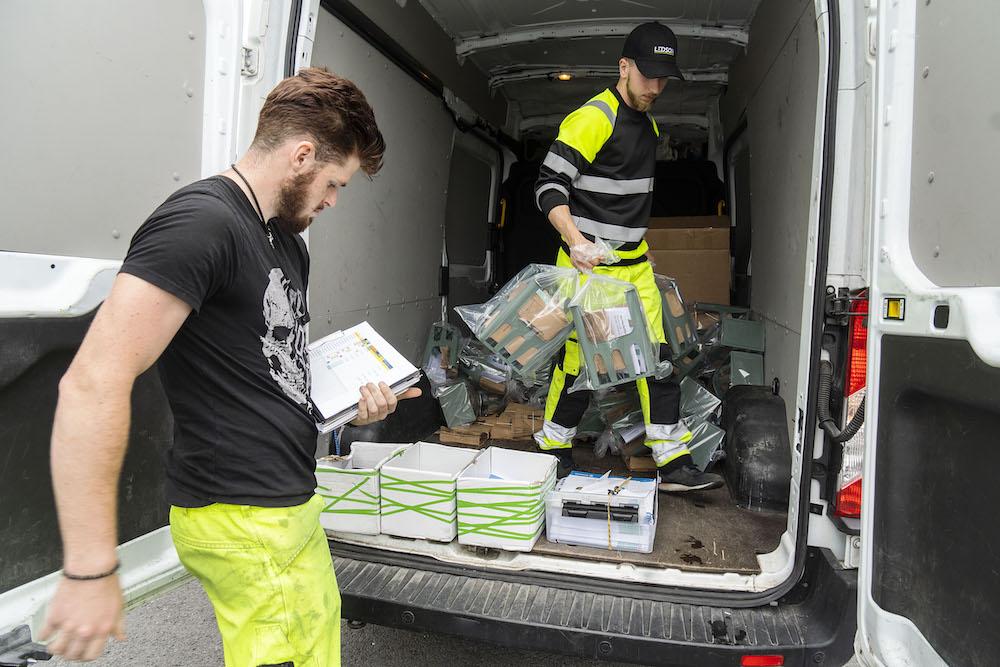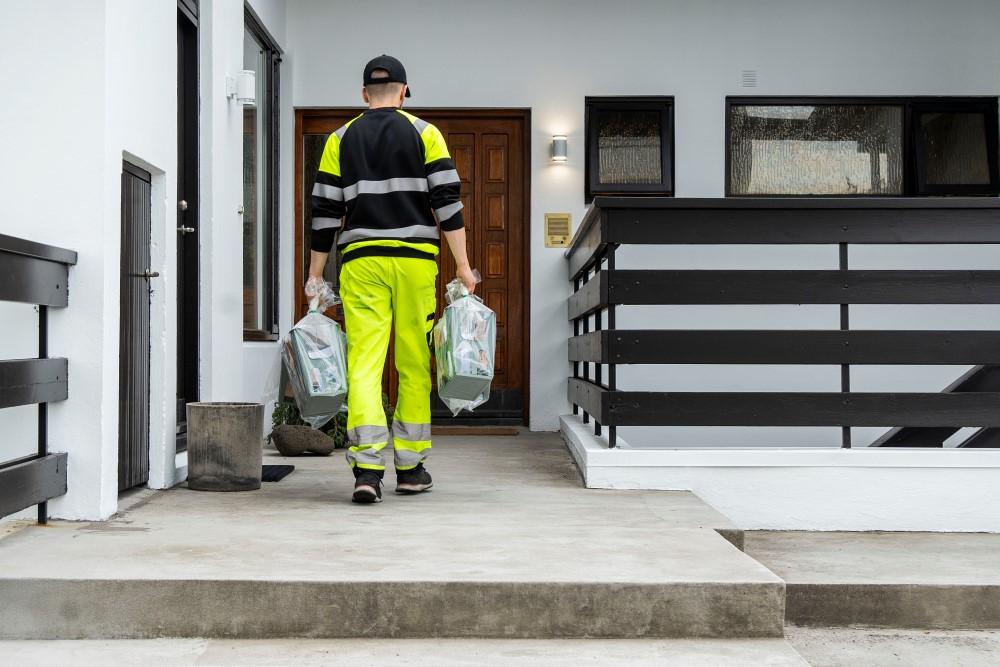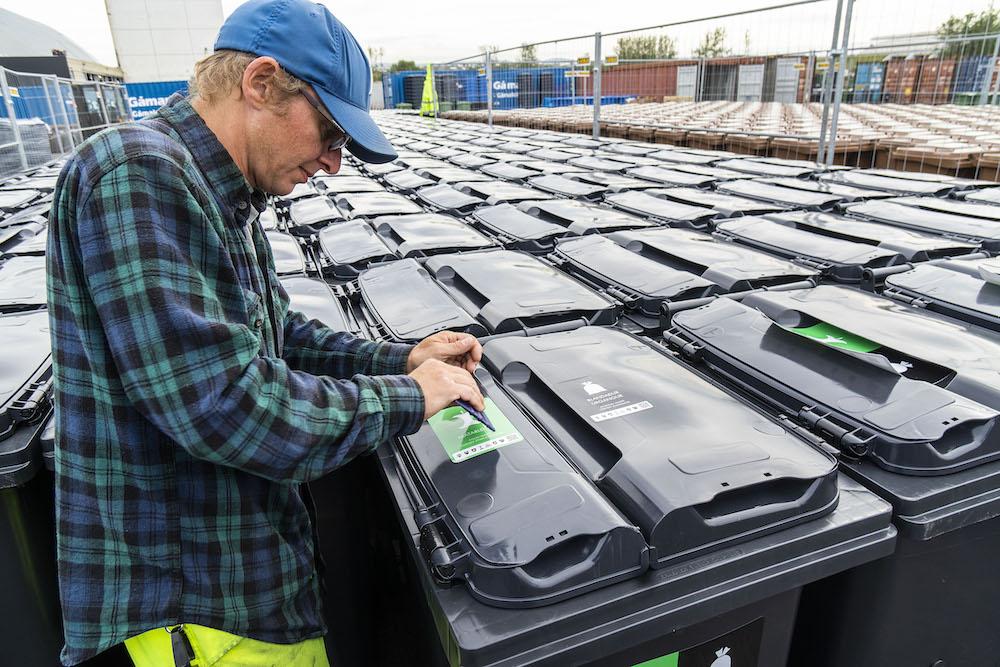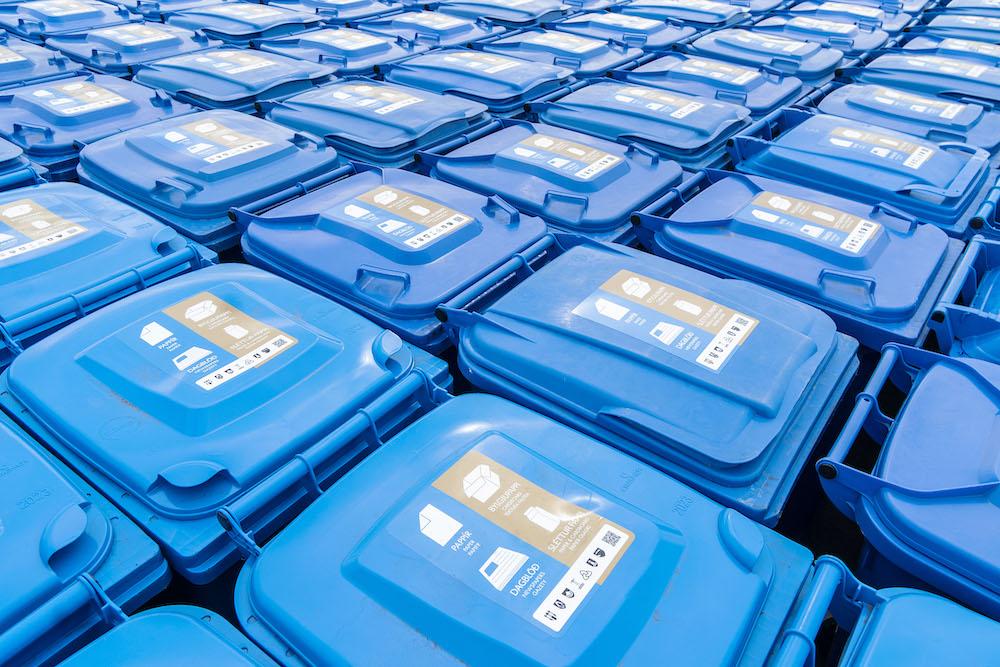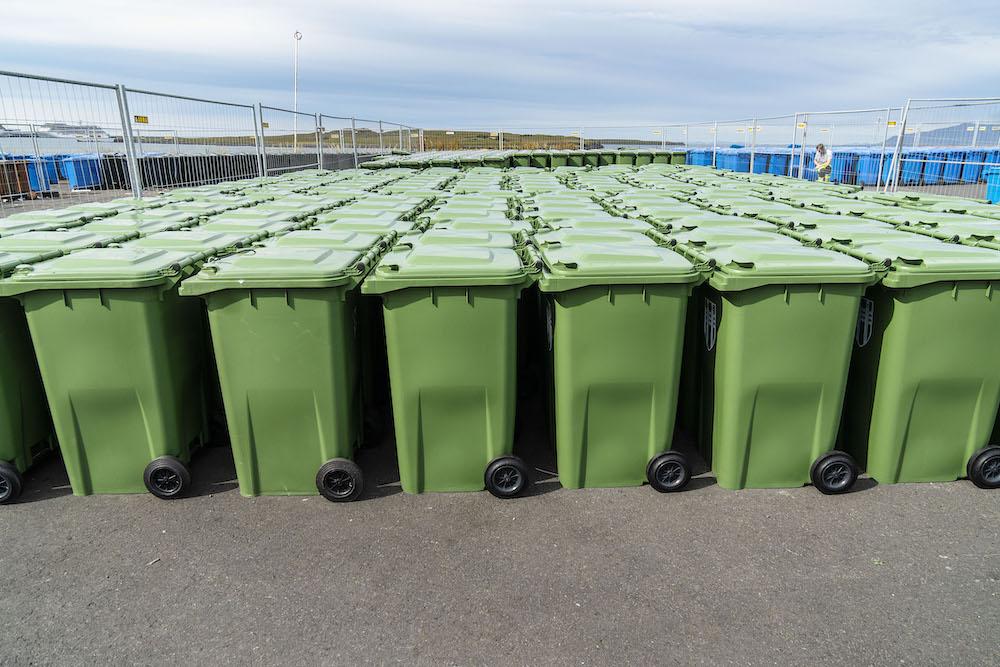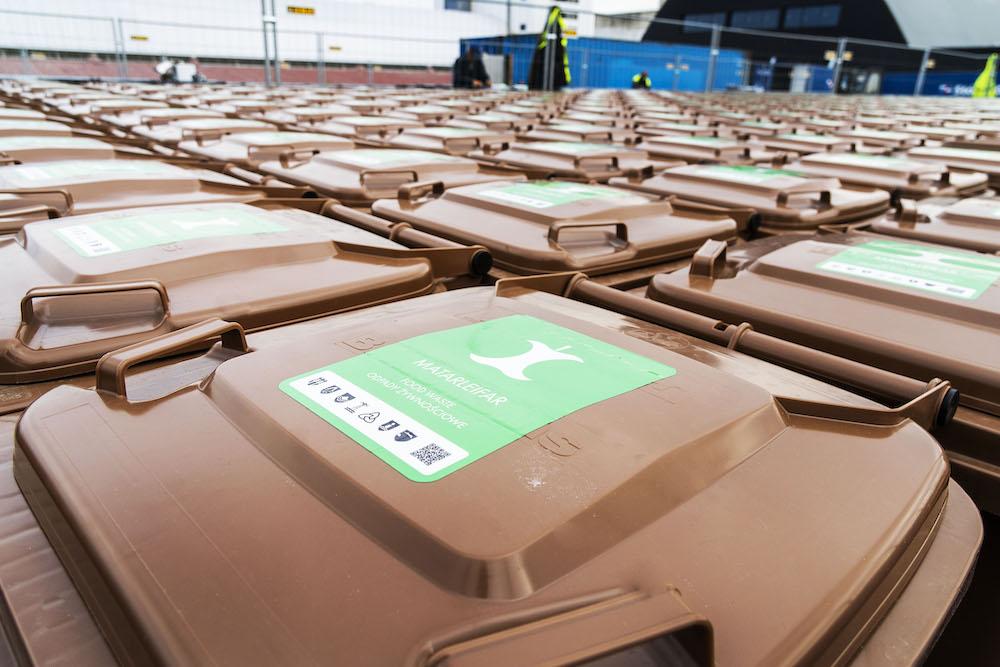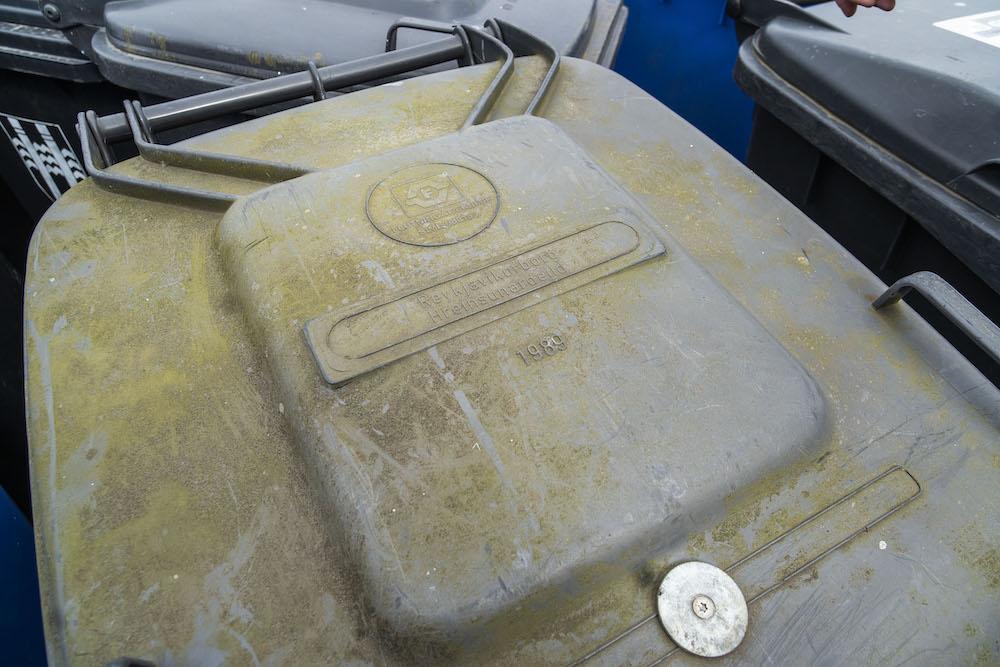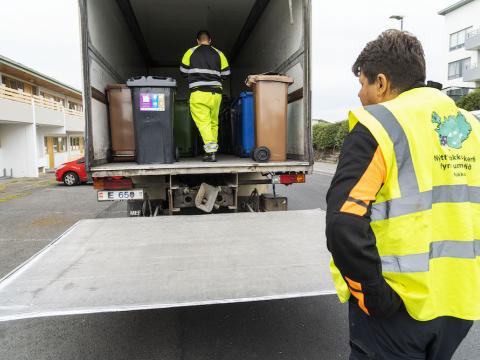
Bin swaps due to a new waste collection sorting system are finished in Reykjavík. The final bins were distributed in Fossvogur today. The overall scope of the project is large and involved the assembly of approximately 30,000 new sorting bins that were distributed to households within the city. About half of those were two-part bins. Baskets and compostable bags have been distributed to 57,000 residences in the city, meaning about 4.4 million bags for organic kitchen waste ended up Reykjavík residents' kitchens.
280 tons of organic waste collected in August
The biggest change with these bin swaps is the collection of organic kitchen waste. In August, approximately 280 tons of organic waste was collected, the majority of which previously went into the gray bin. This means a reduction in the carbon footprint by reducing landfill use. Instead, compost is produced and the nutrients returned to the natural cycle. Methane is also produced, which is used in various ways, including fueling all 14 of Reykjavík City's waste collection vehicles.
280 tons of organic waste means that waste sent to landfill in Reykjavík has already reduced by about 21.5%. This figure is expected to increase even more now that the final district has joined the new system.
20,000 old bins taken back
Not only have new bins been distributed, about 20,000 old bins have also been collected. Some of these have been repurposed and will be used for plastic collection in some neighborhoods. Others have reached the end of their life cycle. The oldest bins date from the mid-1980s. They are sent to Sorpa for material recycling and will be reused for producing other waste bins and other things.
Thank you for your cooperation!
The bin swaps are a large project that has affected every single household in the City. Everyone involved in the project deserves thanks, not least the people of the city, who have shown great interest in the project. It is clear that environmental issues are important to people.
Many City units have contributed to this project, which involved large-scale planning. Preparation began at the start of 2021. The project forms part of the capital area's strategic plan and was carried out in close cooperation with the other municipalities of the capital area.
Change is possible
The available data was used to estimate the number of bins per household. If you foresee needing more bins or a different distribution of bins, you can use the web order form to request changes or additions.
Likewise, if there have been any deviations in distribution, such as missing bins or a wrong number of baskets compared to the number of households, please send an email to info@reykjavik.is or call 411 1111.
